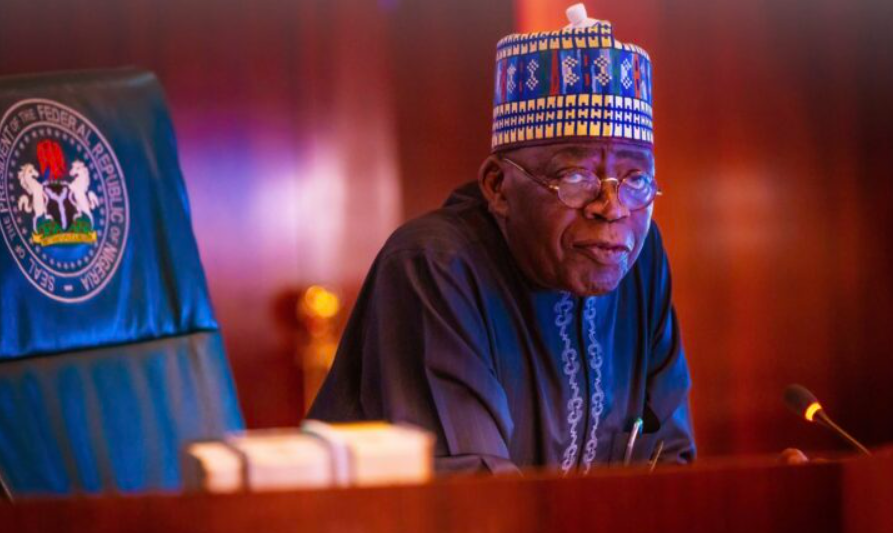In a decisive move to reduce government expenditure and promote accountability, President Bola Ahmed Tinubu has issued a directive restricting attendance at the upcoming United Nations General Assembly (UNGA) to only those with official duties.
This announcement comes amidst growing concerns about the cost of governance and the need for a more prudent allocation of resources.
The directive was revealed by the Chief of Staff to the President, Femi Gbajabiamila, during a one-day retreat organised by the State House management for leaders of government agencies under its jurisdiction.

Gbajabiamila conveyed the President’s clear intent to enforce a more disciplined approach to participation in international events like UNGA.
During the retreat, Gbajabiamila emphasised the importance of the President’s decision, noting that it was made after careful consideration of recent discussions on governance expenses.
The directive represents a significant departure from the past, where it was common for Nigeria to send large delegations to international gatherings, often drawing criticism for the perceived wastage of public funds.
Gbajabiamila stated, “I just discussed with the President this afternoon.
In the next few weeks, we are going to see a test of this policy during UNGA in New York. During recent protests, there were talks about a reduction in the cost of governance.
Everyone is waiting to see if Nigeria, as in the past, will send the ‘largest delegation’ to UNGA.”
This new policy is not only a response to public outcry but also a reflection of the administration’s commitment to streamlining government operations and ensuring that taxpayer money is spent judiciously.
The President’s directive underscores the need for a focused and efficient representation at international forums, where only those with a direct role in the proceedings should be present.
One of the key concerns highlighted by the President’s directive is the misuse of international events by individuals who attend under the guise of official business but engage in personal activities instead.
This practice has long been a source of criticism, both domestically and internationally, as it undermines the credibility of Nigeria’s participation in such important gatherings.
Gbajabiamila addressed this issue directly, stating, “From experience, we know that some individuals use the opportunity of such international meetings to go about their personal businesses.
I have received a directive from Mr President that this time, we will be strict.
If you have no business at the UN General Assembly, do not step foot in America, and this is a directive from Mr President.”
The President’s firm stance on this matter is a clear indication of his resolve to eliminate any form of frivolity or unnecessary expenditure within the government.
By restricting attendance to only those with legitimate roles at UNGA, the administration aims to set a new standard for governmental conduct and international representation.
The directive is expected to have far-reaching implications for how Nigeria participates in international events going forward. It sets a precedent for future engagements, where the emphasis will be on necessity and relevance rather than on the size of the delegation.
This approach not only aligns with global best practices but also enhances the country’s image as a responsible and disciplined participant in the international community.
Moreover, the policy is likely to prompt a broader review of how government resources are allocated for international travel and participation in global events.
It could lead to the establishment of stricter guidelines and more rigorous vetting processes to ensure that only those with essential roles are included in delegations.
The President’s directive has already garnered significant attention and is likely to be met with widespread support from both the public and various government institutions.
The reduction in unnecessary spending is a key aspect of the administration’s broader agenda to address the economic challenges facing the country and to rebuild trust in government institutions.
For the public, this move is likely to be seen as a positive step towards more responsible governance.
It demonstrates a commitment to addressing the concerns of citizens who have long called for greater transparency and efficiency in government operations.
For government agencies, the directive serves as a reminder of the need to align their activities with the administration’s goals and to operate within the confines of their official mandates.
It also encourages a culture of accountability, where officials are expected to justify their participation in international events based on clear and legitimate criteria.
President Tinubu’s directive on UNGA attendance marks a significant shift in how Nigeria approaches international engagements.
By limiting participation to only those with official business, the administration is taking a bold step towards reducing unnecessary government expenditure and promoting accountability.
This move is likely to set the tone for future government operations, where efficiency, relevance, and fiscal responsibility take precedence.
As the nation prepares for the upcoming UNGA, all eyes will be on how this policy is implemented and its impact on Nigeria’s international standing.
Support InfoStride News' Credible Journalism: Only credible journalism can guarantee a fair, accountable and transparent society, including democracy and government. It involves a lot of efforts and money. We need your support. Click here to Donate
